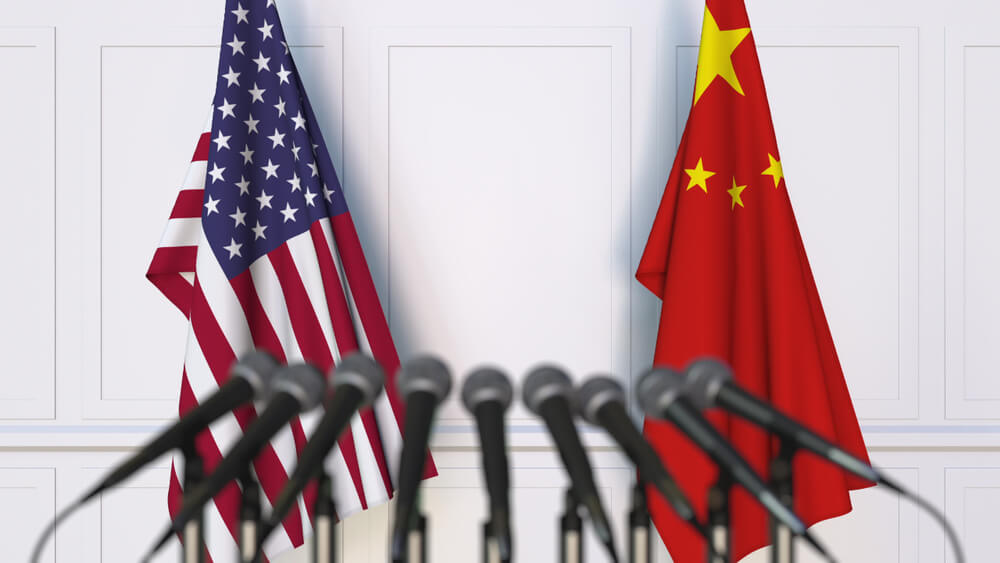The Wall Street Journal is reporting a trade deal between the U.S. and China is getting closer, and the two sides are hoping for a May or June signing ceremony to finalize the long and arduous trade talks and tariff fights.
U.S. trade representative Robert Lighthizer is tentatively scheduled to travel to Beijing the week of April 29, with a Chinese envoy coming to Washington the week of May 6.
Per WSJ:
Talks are continuing, and U.S. and Chinese officials have missed previous deadlines aimed at finishing a deal. But if the senior officials succeed in reaching an accord, then officials from both countries could spend a couple of weeks wrapping up the agreement’s text and legal language before a hoped-for presidential signing ceremony as soon as Memorial Day, the person said.
The latest preliminary schedule of meetings corresponds loosely to a goal President Trump announced April 4 after meeting with Mr. Liu in the White House. “Within the next four weeks or maybe less, maybe more, whatever it takes, something very monumental could be announced,” Mr. Trump said at the time.
The White House and U.S. Trade Representative’s office declined to comment immediately.
Bloomberg also reported Wednesday morning there are concerns that Trump may be giving China a new weapon against U.S. companies and “striking another blow to the international rule of law.”
Per Bloomberg:
Treasury Secretary Steven Mnuchin has said the U.S. has made its own commitments to China and agreed that both sides will be subject to an enforcement mechanism. “This will be a two-way agreement in enforcement,’’ Mnuchin said Monday, after saying over the weekend that the U.S. would be open to “certain repercussions.”
Details of the U.S. commitments and how the enforcement mechanism will operate remain scant. But Mnuchin’s comments have caused plenty of raised eyebrows from legal scholars to the business community and Congress.
If the U.S. allows China reciprocal enforcement powers, it would make China “judge, jury and executioner as to whether we have honored our obligations,’’ said Daniel Price, who served as a senior economic adviser to President George W. Bush and is now at Rock Creek Global Advisors in Washington. “I don’t think the U.S. business community is sufficiently alert to the risk of constantly being exposed to unilateral enforcement action by China.”
The Trump administration wants to have a mechanism that would allow it to quickly punish any foot-dragging by Chinese officials by imposing tariffs or other sanctions without having to go through the World Trade Organization or other adjudicators that they argue have been ineffective in the past. But any reciprocal deal would give Chinese leaders another way to quickly apply their own pressure on American companies.
The mechanism being contemplated, U.S. officials have said, would require consultations between U.S. and Chinese officials over disputes but ultimately allow either side to impose trade sanctions unilaterally. The deal may also see both sides agree to forego their right to retaliate or challenge any enforcement action by the other at the WTO.
Business groups have declined to comment publicly about Mnuchin’s statements, saying the model of the enforcement system isn’t clear yet. Lobbyists nevertheless complain they’re not being consulted by the administration and fret that once a deal is announced American companies will be forced to accept it as a fait accompli.
More to come as this story develops.
